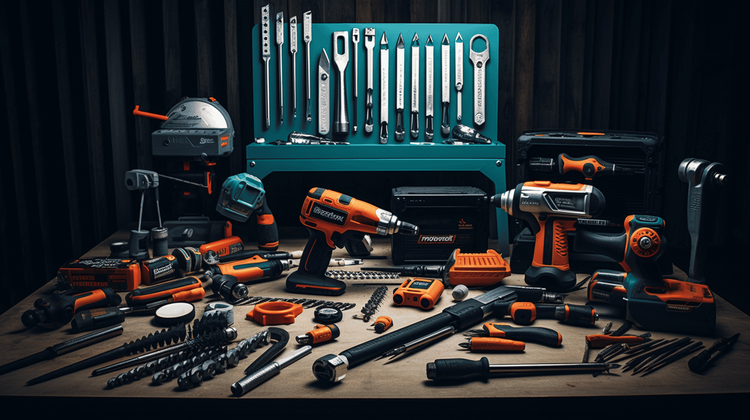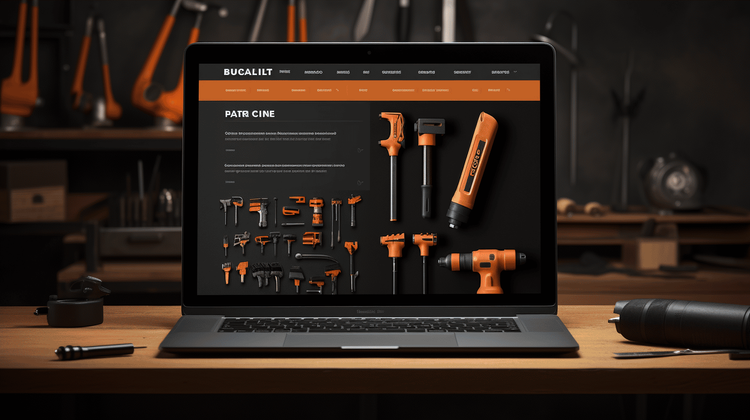Maximizing Your Savings: Tips for Saving Money on Tools and Materials for DIY Projects

DIY projects are an incredibly rewarding way to spend your time, allowing you to express creativity, develop new skills, and create something unique and personal. Whether you adore crafting, woodworking, or home improvement, the thrill of creating something from scratch is unmatched. However, the cost of tools and materials needed for these projects can add up quickly, turning your beloved hobby into a pricey endeavor. This doesn't have to be the case, though. By being savvy about where and when you buy, you can save significant amounts of money without compromising the quality of your work. This article aims to provide helpful tips on how to save money on tools and materials for your DIY projects, making them more affordable and thus more enjoyable.
Shopping Smart for Tools
Not everyone is a professional contractor with a seemingly unlimited budget for top-of-the-line tools. Many of us are just casual DIY enthusiasts, hobbyists, or homeowners needing a set of decent tools without breaking the bank. When it comes to tool shopping, the age-old adage holds—"It's not about having the right opportunities. It's about handling the opportunities right." So let's make your tool-buying opportunities bright, efficient, and well-calculated with three smart shopping strategies that will help you get the best tools at the best prices.
Research and Compare Prices
First things first, before buying any tools, it's crucial that you do your homework. Start by researching the specific tool you need, its variants, and the target price range. Understanding the key features, differences in brands and, most importantly, comparing prices across different retailers are steps not to be skipped.
- Understand the tool functionality. What does it do? What are its key features?
- Explore different brands. Are some brands more dependable than others?
- Do a price check across multiple stores, both online and offline. Where you find the best deal?
Remember, the aim is not just to get the cheapest tool but to get the best value for your money.
Look for Sales and Discounts
There's nothing quite like the thrill of scoring that perfect tool at a discounted price. Retailers often provide sales and discounts which can significantly lower your expenses. Think seasonal sales, like Black Friday and Christmas, when prices go notably down. Other days to look out for include:
- Father's Day
- Labor Day
- End of Financial Year Sale
Regularly checking coupon websites and signing up for retailers' newsletters are also smart strategies to stay updated about upcoming sales and discounts.
Consider Second-hand Options
Finally, don't underestimate the power of a good second-hand tool. Many people have gently used tools in great condition which they're ready to part with, often at a massive discount. Second-hand tools can provide excellent value, especially for rare or expensive tools. Websites like eBay, Craigslist and local thrift stores are gold mines for splendid second-hand finds.
But remember, when buying second-hand tools, it's important to ensure they're in good working condition. A visual check or even better, testing them, can provide confidence in your second-hand purchase.
From researching and comparing prices, hunting down the best sales and discounts, all the way to considering second-hand options, smart shopping for tools requires some strategic planning, patience and a good deal of savviness. But rest assured, the results are worth the effort—enjoy high-quality tools without straining your pocket! Tool shopping is no longer a tough call, is it?
Budget-Friendly Materials
In the world of DIY projects, finding budget-friendly materials can make your craft more enjoyable and less stressful on your wallet. The key is to be savvy in your shopping, smart in your selection, and innovative in your quest for materials. Whether you're embarking on a new gardening project or adding a fresh coat of paint to an old piece of furniture, there are a number of ways to save money while not compromising on quality. We're here to share three foolproof techniques, namely "Reuse and Recycle", "Buy in Bulk", and "Opt for Store Brands or Generic Options".
Reuse and Recycle
An age-old proverb says, "Waste not, want not," and when it comes to craft materials, the saying holds true. Reusing and recycling materials not only help the environment, but also encourage creativity and resourcefulness. The old drapes you consider throwing out can be repurposed into stylish cushion covers. The empty glass jars gathering dust in the cupboard may serve as aesthetic candle holders. Upcycling, as many call it, opens the door to innovative, unique, and cost-effective solutions for your DIY projects.
Buy in Bulk
Buying in bulk is another proven money-saving strategy. Instead of buying small portions of your needed materials, consider getting them in larger quantities. Basic supplies like glue, tape, paint, and fabric can be cheaper when purchased in bulk. Think of it as an investment for future projects. For instance, gardeners opting for large bags of mulch or potting soil can benefit not only from the lower price per unit but also have sufficient supplies for their next plant project.
Opt for Store Brands or Generic Options
Preferring store brands or generic options over renowned brands is a no-brainer for tight budgets. While name brands often come with a large following and rave reviews, they also tend to carry a heftier price tag. Store brand or generic materials offer a similar level of quality at a fraction of the cost, making it an economical choice for most DIY enthusiasts.
The secret to finding budget-friendly materials is in knowing where to look and adopting smart shopping strategies. It's all about striking a balance between quality and cost. Remember, the end goal is to add a dash of creativity into your life, without breaking the bank.
DIY Hacks to Save Money
Repurpose Everyday Items
Who knew that your old wine bottles or discarded boxes could be turned into beautiful and useful pieces? One of the easiest and most fun ways to save money around the house is by repurposing everyday items. Not only do these DIY hacks keep things out of landfills, but they also add an extra touch of personality to any space.
Here are some creative ideas to get you started:
- Wine Bottles: Clean them out, and suddenly, you have rustic vases for your flowers. Tie twine around the neck, and it doubles as a beautiful candle holder.
- Shoe Boxes: With a little wrapping paper or paint, old shoe boxes can be transformed into stylish storage containers.
- Old T-Shirts: Cut them up into smaller pieces, and voila, you have eco-friendly and reusable cleaning cloths.
Now that's how you transform standard items into functional pieces, adding charm to your home without denting your wallet.
Learn Basic Repair Skills
In a world where everything is disposable, learning basic repair skills might seem outdated. But when you consider the costs of hiring professional help for small fixes or buying new each time something breaks, it becomes crystal clear why this is an extremely valuable skillset.
Imagine not being to pay for:
- Changing a light bulb: You might think it’s simple, but a significant number of householders pay for this.
- Troubleshooting simple plumbing issues: An understanding of basic concepts could solve a leaking faucet, saving hundreds of dollars.
- Sewing: Knowing how to sew on a button or mend minor tears can breathe new life into damaged clothing, negating the need to shop for replacements immediately.
Learning these and more basic repair skills can significantly reduce expenses in the long run, contributing to a culture of sustainability.
Try DIY Alternatives
The world of DIY doesn't only extend to fixing and crafting; it reaches into the realm of alternatives as well! By creating your versions of everyday items, you can experience surprising savings.
Consider these alternatives:
- Homemade cleaning solutions: Many pantry staples can be used to create effective, non-toxic cleaners. Think vinegar, baking soda, and lemon.
- Homegrown veggies: It's unbelievable the amount of money saved by growing your own greens. Plus, you get the added benefit of knowing exactly where your food comes from.
- Handcrafted gifts: Nothing says love and meaning like a handcrafted gift. These are usually appreciated more than store-bought items and offer a unique touch.
As evident, a bit of DIY can go a long way in saving money. It's time to roll your sleeves up, think outside the box, repurpose, learn, and create. You might just be surprised at how cost-effective, fun, and satisfying a DIY lifestyle can be.
Online Resources and Communities
In today's digitally connected world, everything from DIY projects to professional tasks can be accomplished with the help of online resources and communities. Whether it's a quirky craft project or a major home renovation, there are a plethora of platforms to guide you through the process and even connect you with like-minded individuals sharing innovative ideas. Wouldn't it be great to explore some of these, and see how they can make your DIY journey smoother?
Check Online Classifieds and Marketplaces
Offline shopping for materials and tools can be a daunting task, especially for beginners. Thankfully, online classifieds and marketplaces have emerged as the one-stop solution for this issue. These platforms offer a broad range of options, allowing you to easily find what you need. Delivering a bounty of products directly to your doorstep, they are democratizing DIY in exciting new ways.
- Online classifieds are a great place to find second-hand tools or materials. A used power drill can perform just as well as a new one, but at a fraction of the cost. Sellers often include reviews and user ratings on their products, giving you an idea of the quality you're getting into.
- Online marketplaces, on the other hand, link consumers with a wide array of sellers from various fields. From specialized tools to raw materials, these platforms cater to a comprehensive list of requirements. Thanks to the fierce competition among sellers, it's quite common to stumble upon fantastic deals and discounts as well.
Join DIY Forums and Social Media Groups
Apart from buying materials and tools, the internet also provides a robust community-building platform. Various forums and social media groups exist solely for the purpose of connecting DIY enthusiasts around the world. These platforms are filled with experienced individuals willing to share their knowledge and insights.
- Forums are classic online discussion spaces where users can share their experiences, ask for advice, or provide guidance to others. They cover a wide range of topics, ensuring that no matter the nature of your DIY project, you can find suitable advice and direction.
- Social media groups are quite similar to forums but are typically more casual and interactive. With functionalities such as live chats, tutorials, webinars, and guest sessions by experts, these platforms bring the entire DIY network to life, thereby allowing individual ideas and creativity to flourish.
Relying on online resources and communities can significantly enhance your DIY journey. They not only provide the necessary tools and materials but also a sense of camaraderie and shared enthusiasm. So don't hesitate to dig into these platforms; the wealth of knowledge and inspiration you'll find is undoubtedly priceless.
Conclusion
Embracing DIY projects not only allows you to tap into your creativity and enjoy a sense of accomplishment, but it also provides a unique opportunity to save money on tools and materials. By shopping smartly, choosing budget-friendly materials, utilizing DIY hacks, and leveraging online resources, you can make the most out of each project without breaking the bank.
Don't forget that Ultra Handy, your trusted eCommerce Amazon store, has a wide variety of high-quality yet affordable tools and materials for all your DIY endeavors. Whether you're an adventurous outdoors type or a dedicated handyperson, we're here to support your journey to success. Visit our store today and explore the endless possibilities.
Remember, saving money starts with a strategy and ends with smart decisions. Happy DIY-ing!
Frequently Asked Questions
- What are some tips for saving money on tools for DIY projects?1. Consider borrowing tools from friends or neighbors. 2. Look for second-hand tools at garage sales or online platforms. 3. Utilize tool rental services for specialized or infrequently used tools. 4. Compare prices from different stores and online retailers. 5. Take advantage of discounts, promotions, or coupon codes.
- How can I save money on materials for DIY projects?Here are some ways to save money on materials: 1. Use reclaimed or recycled materials. 2. Buy materials in bulk or during sales. 3. Look for discounted or clearance items. 4. Consider alternative, budget-friendly materials. 5. Plan your projects carefully to minimize waste and maximize material usage.
- Are there any online platforms specifically for buying/selling used tools?Yes, there are several online platforms where you can buy or sell used tools, such as eBay, Craigslist, Facebook Marketplace, and OfferUp. These platforms often have a wide range of tools available at affordable prices.
- Can I negotiate prices when purchasing tools or materials?In some cases, you may be able to negotiate prices, especially when buying from independent sellers or local stores. It's worth asking if there's any room for negotiation, especially if you're buying multiple items or if the tools/materials have slight imperfections.
- Are there any membership programs or loyalty cards that offer discounts on tools and materials?Yes, some home improvement stores offer membership programs or loyalty cards that provide discounts on tools and materials. Examples include Home Depot's Pro Xtra, Lowe's Pro Loyalty Program, and Menards' Big Card. These programs often come with additional benefits like exclusive offers and personalized services.




